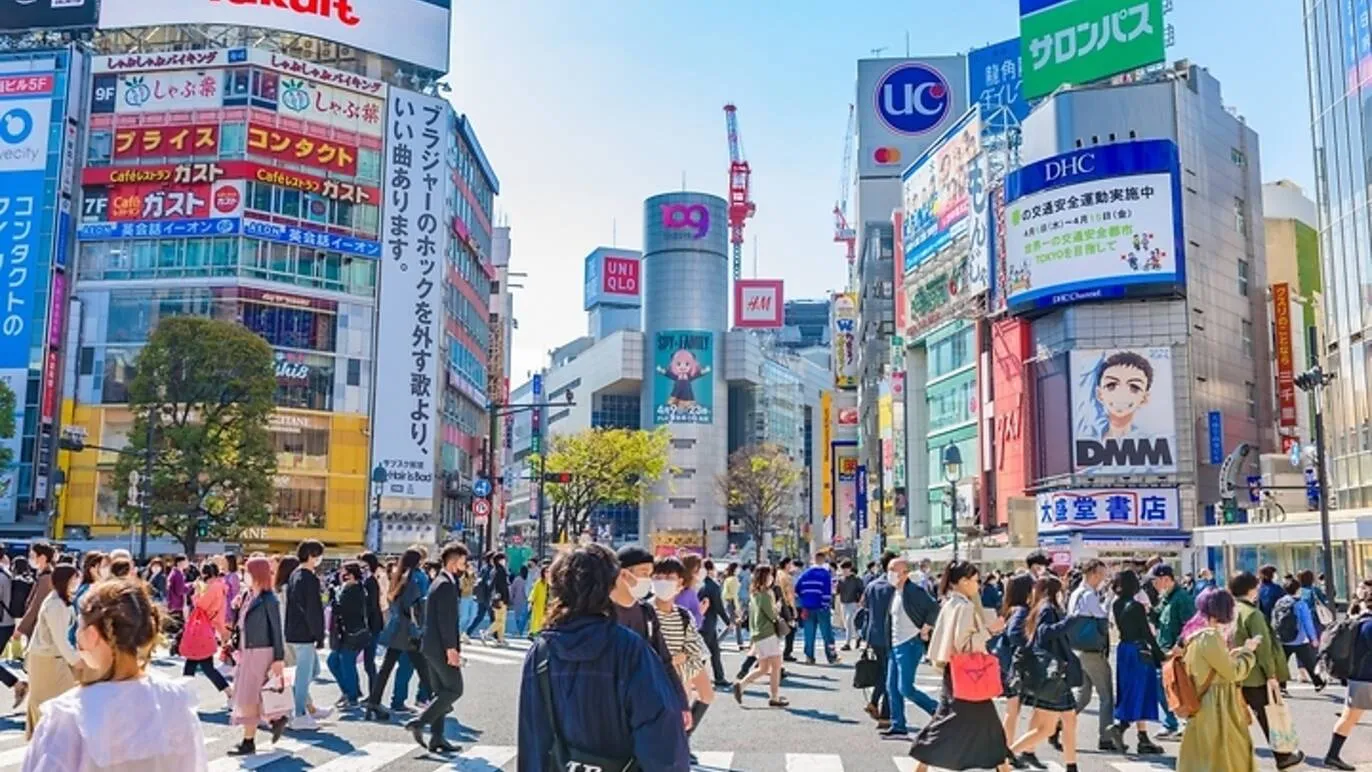- Japan is actively working to become a hub for digital nomads by introducing policies such as a new visa system that allows foreign workers to stay up to six months.
- Partnerships between businesses and local governments aim to create an ecosystem for digital nomads, attracting more to Japan and integrating them into local communities.
- The presence of digital nomads in Japan brings significant economic benefits, such as higher average monthly incomes compared with local citizens and increased spending in regional economies.
A way of working called “digital nomadism,” allowing people to travel and work remotely for the short or medium term without being tied to a specific location, is gaining popularity worldwide. In Japan, the government has announced plans to attract “digital nomad” talent through a new system allowing visitors from 49 countries and territories to stay in Japan for up to six months.
The initiative aims to encourage highly skilled foreign workers who wish to work while touring Japan, stimulating consumption and fostering innovation. The digital nomad visa, which allows twice the duration of a 90-day tourist visa, is conditional on, among other things, earning more than JPY 10 million ($66,000) per annum and having private medical insurance.
Companies and local governments have been busy attracting digital nomads before the scheme starts at the end of March.
More housing rentals for foreigners
Mitsubishi Estate has announced plans to supply 10,000 rental homes for foreigners by 2030, catering to the increasing demand from digital nomads. The company has entered a licensing agreement with the US real estate tech company Blueground Holdings. It will execute online leasing contracts in English through Blueground’s reservation system and resident inquiries can be directed via an app.
However, there are still barriers. A 2016 survey conducted by the Ministry of Land, Infrastructure, Transport and Tourism found that property owners were significantly unwilling to rent to foreigners.
Japanese rental contract customs, such as paying for keys and security deposits, also deter short- and medium-term stays for foreigners in Japan. With a target revenue of JPY 20 billion ($132 million) and an operating profit of JPY 3 billion ($19.8 million), Mitsubishi Estate’s project is expected to offer solutions to these challenges.
Local government efforts
In October 2023, Fukuoka City and the Fukuoka Convention & Visitors Bureau, a public interest corporation, launched the COLIVE FUKUOKAprogramme to attract digital nomads. This experimental initiative invited over 50 digital nomads from 24 countries and regions, including the United States, Mexico and South Korea, to explore the impacts and challenges of becoming a digital nomad in Japan.
In collaboration with Yugyo, Japan’s first marketing firm specializing in the digital nomad market, the program offered multiple co-working spaces as bases for visiting digital nomads in the city for one month and organized meetups with local businesses and community events.
In addition, in November 2023, Nagasaki City utilized subsidies from the Japan Tourism Agency to conduct a FAM Tour or “Familiarization Tour,” inviting influencers and others to experience the city. Through interviews and other activities with digital nomads, the city surveyed how well they were attracting them and explored the potential for future growth in the digital nomad market.
Furthermore, Techstars, the world’s largest pre-seed investor, will hold its three-month equity-based startup acceleration programme, “Techstars Accelerator,” in Tokyo during the summer of 2024. The programme – implemented through collaboration between the Tokyo Metropolitan Government, Japan External Trade Organization, Ministry of Economy, Trade and Industry, Cabinet Office, Mitsui Fudosan and Techstars – aims to globalize Japanese startups and promote foreign entrepreneurship in Japan. As such, it will see the selection of 12 seed-stage startups to receive $120,000 in investment to scale up.
Manabu Miyasaka, the vice governor of Tokyo, emphasized the importance of creating an environment where foreign digital nomad talent can work in Tokyo and expressed determination to accelerate efforts to attract top talent to the city, starting with initiatives like Techstars’.
“
There is considerable anticipation about how attracting more professional talents with diverse cultures and values can revitalize local economies, foster innovation and create new business opportunities.”— Naoko Tochibayashi, Commnications Lead Japan, World Economic Forum | Naoko Kutty, Digital Editor, World Economic Forum
Japan as a digital nomad hub
Having more digital nomads in Japan, representing professionals with diverse backgrounds, brings many benefits, such as helping to solve immigration issues, sharing new knowledge, spurring innovation and creating new businesses, according to Associate Professor Prithwiraj Choudhury from Harvard Business School.
A survey found that the average monthly income of digital nomads staying in Japan exceeds JPY 780,000 (approximately $5,200), more than twice that of Japanese citizens. With its abundant tourism resources, Japan can expect high-spending digital nomads to revitalize the local economy from a remote work standpoint and as a new customer base in the tourism sector.
According to the World Economic Forum’s white paper “The Rise of Global Digital Jobs,” approximately 73 million individuals engage in digital and global jobs with remote work options, projected to reach 92 million by 2030. In line with this trend, Tokyo has emerged on top for attracting the most digital nomads, with nomadlist.com noting a remarkable 396% surge in remote workers in 2022 alone.
Japan also secured the top spot in the World Economic Forum’s Development Index ranking of the “2021 Travel & Tourism Development Index“. High ratings were given for convenient transportation, richness of tourism resources, including natural and cultural heritage sites, safety, and cleanliness.
However, the East Asian island nation fell short in prioritizing travel and tourism, international openness, human resources and the labour market, ranking 42nd, 39th and 31st out of 117 countries. The attraction of digital nomads may contribute to addressing these challenges.
With Japan gaining global recognition as a destination for remote work and tourism, there is considerable anticipation about how attracting more professional talents with diverse cultures and values can revitalize local economies, foster innovation and create new business opportunities.



